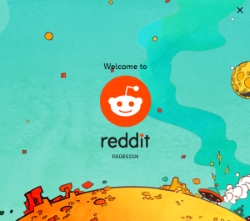Introduction
 Many in the field of composition studies include the analysis of discourse and discourse communities in their composition pedagogy. In fact, this practice is one of the few through lines in composition pedagogy over the past 40 years. As early as 1977, Mina Shaughnessy mentioned the importance of discourse in teaching writing, and authors such as Patricia Bizzell (2009), David Bartholomae (2009), John Swales (1990), and Deborah Brandt (2011) stressed this importance throughout the 1980s and '90s. While other practices in composition pedagogy have fallen away, an exploration of the features of discourse communities has remained central to many modern pedagogical approaches, such as the approach suggested by Anne Beaufort (2007), the witing about writing approach suggested by Douglas Downs and Elizabeth Wardle (2007), and the teaching for transfer approach suggested by Kathleen Black Yancey, Liane Robertson, and Kara Taczak (2014). Despite some valid criticisms of the concept of discourse communities from scholars such as Joseph Harris (1989), Mary Jo Reiff (1996), and Paul Prior (1998)—even being referred to as a "zombie" concept in a recent article by Paul Prior and Andrea R. Olinger (2018)—the exploration of discourse communities has continued to remain central to the pedagogical philosophies of many composition teachers and scholars.
Many in the field of composition studies include the analysis of discourse and discourse communities in their composition pedagogy. In fact, this practice is one of the few through lines in composition pedagogy over the past 40 years. As early as 1977, Mina Shaughnessy mentioned the importance of discourse in teaching writing, and authors such as Patricia Bizzell (2009), David Bartholomae (2009), John Swales (1990), and Deborah Brandt (2011) stressed this importance throughout the 1980s and '90s. While other practices in composition pedagogy have fallen away, an exploration of the features of discourse communities has remained central to many modern pedagogical approaches, such as the approach suggested by Anne Beaufort (2007), the witing about writing approach suggested by Douglas Downs and Elizabeth Wardle (2007), and the teaching for transfer approach suggested by Kathleen Black Yancey, Liane Robertson, and Kara Taczak (2014). Despite some valid criticisms of the concept of discourse communities from scholars such as Joseph Harris (1989), Mary Jo Reiff (1996), and Paul Prior (1998)—even being referred to as a "zombie" concept in a recent article by Paul Prior and Andrea R. Olinger (2018)—the exploration of discourse communities has continued to remain central to the pedagogical philosophies of many composition teachers and scholars.
Unfortunately, how to teach students about discourse is a much more difficult conversation. Some favor teaching a generalized "academic discourse" that many suggest may not even exist (Russell, 1995; Wardle, 2009), and others prefer a writing across the curriculum or writing in the disciplines (WAC/WID) approach that encourages students to learn specific discourses within their own disciplines. In this text, my goal is to provide one way to teach students how to enter a new discourse community. Students can then use what they've learned to enter new discourse communities after leaving their composition classes. The purpose is not to teach students a specific discourse so much as to teach them how to recognize and enter new discourse communities on their own.
I began using a pedagogy like the one described here in a first-year composition class in the fall of 2011. In the earliest version of the assignment, students were asked to find a new online discourse community and break down the discourse conventions of the space. Many students chose message boards, specific pages on social media sites, and other online spaces. Early on, few people chose "subreddits," the subcommunities on the website reddit that each focus on a particular topic. As time has gone on, however, more and more of my students have chosen to use subreddits, to the point where they are often the primary model I use to teach students about discourse and entering discourse communities. During this same time, reddit drew me in more and more as a user as well, so it may not be a surprise that using reddit as a model appealed to me.
I think it is no accident that both my students and I have slowly gravitated toward subreddits for this assignment on discourse. Reddit serves as a particularly good model to teach discourse communities for several reasons: it mirrors the structure of the "one but many" discourse of academia, it has over 1.2 million discourse communities to choose from, and it provides quick feedback on whether or not students are successfully joining the discourse. In this text, I hope to demonstrate why reddit is a good model to demonstrate what discourse is and how to enter discourse communities. I also hope to demonstrate how using reddit in the classroom can facilitate discussions of academic discourse. In fact, reddit provides such strong models for how discourse communities form, evolve, and interact that there is a great deal that composition teachers can learn from reddit as well.
The remainder of this webtext is divided into seven sections. The first section is titled "What is Discourse?" In this section, I provide definitions for the terms "discourse" and "discourse communities" and explain the relationship between discourse and composition (including why some scholars push back against this concept). In the section titled "What is Reddit?" I provide readers a guide through reddit, explaining what the site is and how it functions as well as providing the basic information necessary to begin using reddit. "Why Reddit?" focuses specifically on the relationship between subreddits and academic discourse communities. The section "Classroom Application" provides a step-by-step walkthrough of how I have approached a project connecting reddit and discourse in my own FYC classes, and the section "Student Projects" provides real student examples of the outcomes of that project. The section "What Reddit Teaches Us" gives an overview of the main takeaways of this webtext. The final section provides a list of texts referenced in this webtext.
